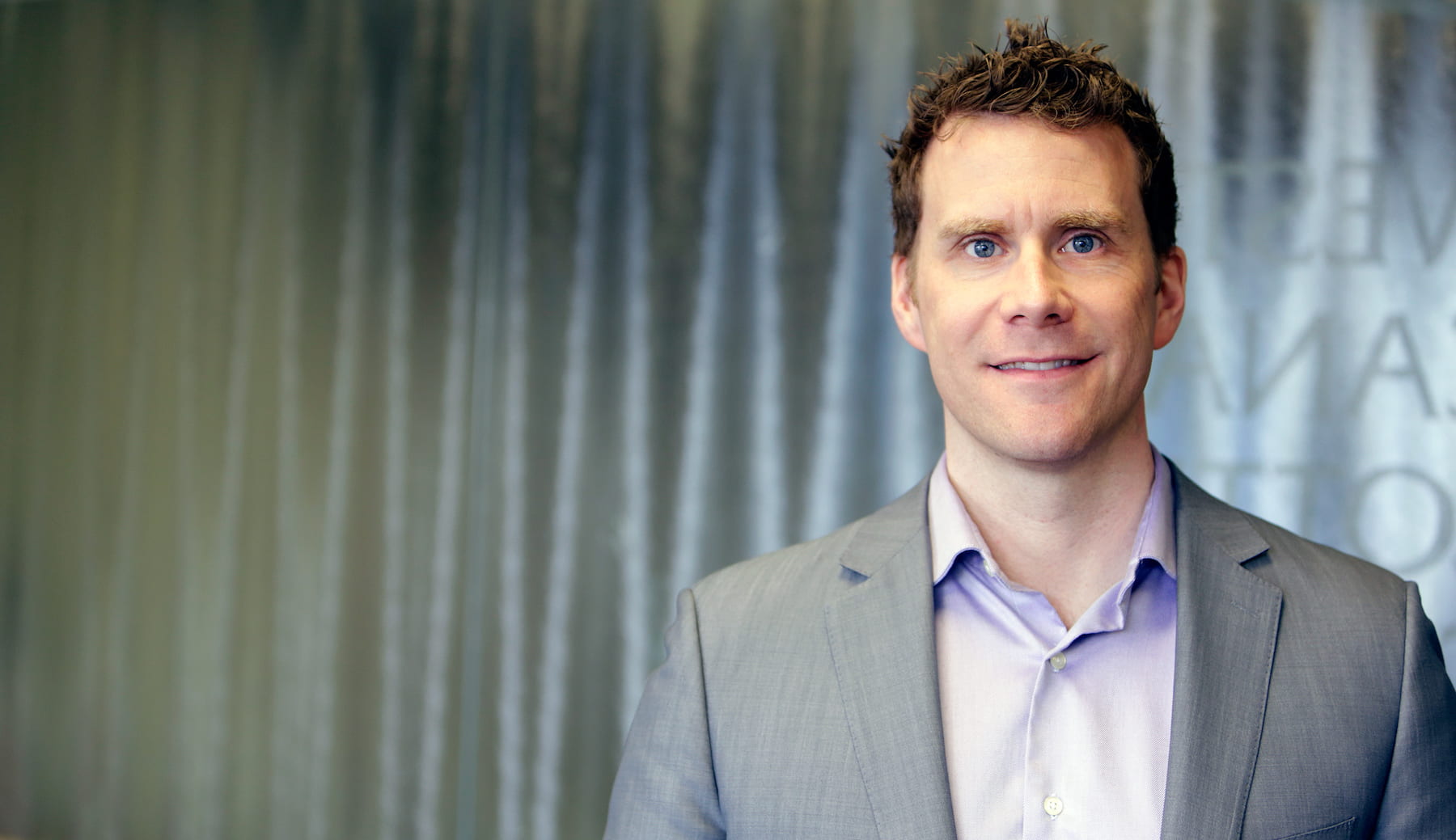Business Analyst / Project Management grad applies skills to work and music
Scott Hinkson has the kind of schedule that might have you picturing him slipping into a phone booth before rushing off to his next stop, red cape flapping in the wind.
By day, he’s a nose-to-the-grind Senior Project Manager at Western Canada Lottery Corporation (WCLC). After hours, he instructs on-campus and distance courses, including one he wrote himself, in both of the Continuing Education certificate programs he’s graduated from at Red River College: Business Analyst (2010) and Project Management (2011). He also sits on RRC’s Business Analyst Advisory Committee, and at home, he’s a father to a busy almost-three-year-old son.
Hectic, sure. But somehow Hinkson still finds time to fit in performing as a successful local musician and working on releasing his fifth album.
“My first love is music, ever since I was a little tyke listening to Simon & Garfunkel on my parents’ old 8-tracks,” says Hinkson, who sings and plays guitar, plus pretty much whatever other instrument he envisions for his songs. Since 2004, he has released a short film soundtrack, and garnered local radio play and media attention with four solo albums.
“Nowadays, I have to book a day off for the house to be quiet enough for me to actually finish writing a song,” he says. “Usually I have about a 15-minute window to come up with an idea for a song, like while my little guy is having a bath.”
Hinkson’s time is much more regimented at work, where he not only schedules his own day, but his colleagues’ as well. As Senior Project Manager, he runs a handful of large projects at any one time, defining each project’s needs, identifying risks, then ensuring the project team delivers within the agreed-upon scope, budget and schedule.
Originally in quality assurance at WCLC, it was Hinkson’s involvement on a three-year, multi-million-dollar initiative beginning in 2007 that introduced him to both business analyst and project management work, and to the RRC programs.
“I started taking the Business Analyst program in preparation for flipping into a lead business analyst role. I like the idea of schooling for practical purposes, for real skills, tools and techniques that I can apply to the workplace,” explains Hinkson. “Then they ended up making me a backup project manager, then a full project manager in the same initiative. So I decided, hey, I might as well (take the Project Management program) too.”
After the major project wrapped up in 2011, Hinkson took on a full-time project manager position – an opportunity he says he owes to his RRC training.
“If I didn’t have that Project Management certificate, there’s no way I would be in my role right now,” he says. The program was also a great in-depth foundation for later achieving his Project Management Professional (PMP) professional certification.
Both RRC programs provided tools and techniques to help him problem solve and identify best practices at work, Hinkson says. As an instructor, his experience allows him to pull up practical examples and field questions from Business Analyst and Project Management students.
While Hinkson feels fortunate that his education means he can “flip flop” between business analyst and project management roles, he is enjoying project management because every project is different, with different goals and objectives – and once the project is done, you start with something new.
“I had a project manager once say to me, ‘It’s the best career I ever fell into,’ and I agree. Nobody ever really sets out to be a project manager; it’s something you just find yourself doing, based on other people’s suggestions and your own organizational abilities.”
So do project management skills find their way into his music career? Not really, Hinkson says… then changes his mind.
“Once I’m done with work I like to try to park that side of my brain – music is more of the creative side for me, so I try not to over-formalize it. Having said that, I just bought a book called Project Management for Musicians. I have yet to read it,” he laughs.
“So I guess it does spill over, when you think about it. When you write a track you have to figure out what is the song structure, what other instrumentation do you want to add, do you have the skills to do that instrumentation, who’s going to record it, what’s your budget overall? Then you have to determine, based on budget and schedule, how broad you want the production to be.”
By learning to play, record and produce his own music, he’s mostly taken scheduling and cost issues out of the equation, although time is the one thing he can’t always control.
“It’s not as if you can say to yourself, ‘I’m going to write a hit song today’ – it comes when it comes. You can work on it, but sometimes it’s like squeezing water out of a rock – it just doesn’t come naturally.”
Check out Hinkson’s songwriting prowess at his website.
Profile by Sherry Kaniuga (Creative Communications, 1998)

